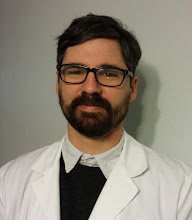If you are grappling with concepts of treatment effects and how a technique works or if something is effective and what role it plays in your patient's recovery... then this post is for you!
A few colleagues and I recently attended a lecture on Music Therapy from Tracy Bowdish, MM, NMT Fellow, MT-BC. We discussed some fascinating music therapy concepts in treating movement disorders, but while discussing research paradigms she posed the question about Therapy vs. Therapeutic. Many answers lie in answering the question: Is this therapy, or is this therapeutic?
Therapy is an act, a profession, and researched concept. It is provided by a therapist, it is tailored to a patient with specific goals in mind with expected outcomes anticipated. It has reasoning and sound science as a foundation.
Therapeutic is almost just like all the above things. It makes you feel good, it feels just like therapy to be exact, and looks like it too! It does not, however, have a true reason for existence, it is not the ends to a goal, and is not patient specific.
This is how I'm looking at the concepts, follow with me for a few examples. Tracy told the example of going for a run after a long stressful day at work. When you get done, you feel better. That was therapeutic. It was not therapy.
To be "run therapy' it would have to go like this: first it would have to be researched and shown that running reduces stress levels in a clinically significant manner, then the correct run dose to stress level should be found, then a run therapist would help an individual tailor a running plan for the purpose of reducing stress. That would be therapy. The fact that running happened to reduce your stress, even if you thought it would before you went, does not qualify as therapy, it is merely a therapeutic effect.
You all can think of more examples I'm sure. Therapeutic effects of a nap vs. nap therapy. The therapeutic effects of touch vs. touch therapy. The therapeutic effects of friendship vs. friendship therapy. This is a difference. It has to do with purpose, with intent, with causal assumptions.
Now, before you get all anti-semantic on me, hear me out. We know that touch has non-specific effects. We know that positive language (placebo) has positive outcomes in patients. We know that a healing context and met expectations can aid in the recovery of an injury. These things are therapeutic! They do not, on their own, constitute as therapy. They enhance therapy... the myelin sheath around therapy.
If you set out to improve someone's injury by dressing well, smiling, shaking hands and having positive body and verbal language (placebo interaction), then you are committing fraud of sorts even though these are therapeutic actions. To be considered therapy, it must be therapy. But dang if we can't maximize the benefits of therapy by using therapeutic measures. We sure can, you bet. But we need to know their place.
This is where many of the arguments in the physical therapy field come down to. My therapeutic tool is better than your therapeutic tool. Heck, it's called therapeutic Ultra Sound... We know that patients get better with manual therapy, but how much of that is therapeutic effect? (I know there is therapeutic dry needling and therapeutic exercise... I am not saying that everyone uses the terms the way I am here. Heck, in the dictionary the synonym for therapeutic is "cure.") As stated before, therapy is a rigorous process by which tools and processes are studied and researched. It must pass certain criterion to be considered therapy and it must applied with certain intents and goals.
My take home point being this: Provide therapy to patients. They deserve it. Know how to wield therapeutic factors, because they too have influences on outcomes and patient experience.
-Matt Dancigers, DPT
*This was originally posted in 2014 at PTBrainTrust
Interested in live cases where I apply this approach and integrate it with pain science, manual therapy, repeated motions, IASTM, with emphasis on patient education? Check out Modern Manual Therapy!
Keeping it Eclectic...
















Post a Comment
Post a Comment